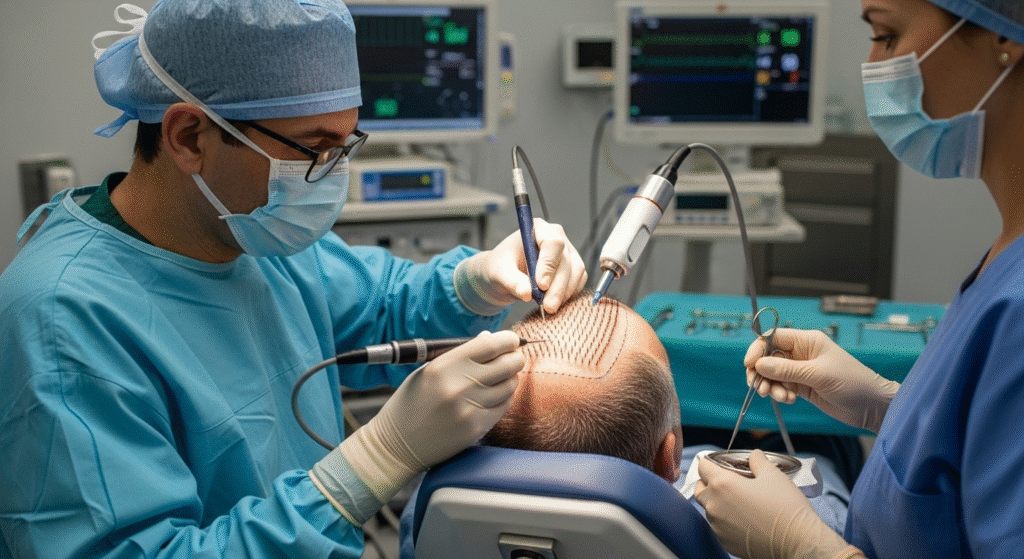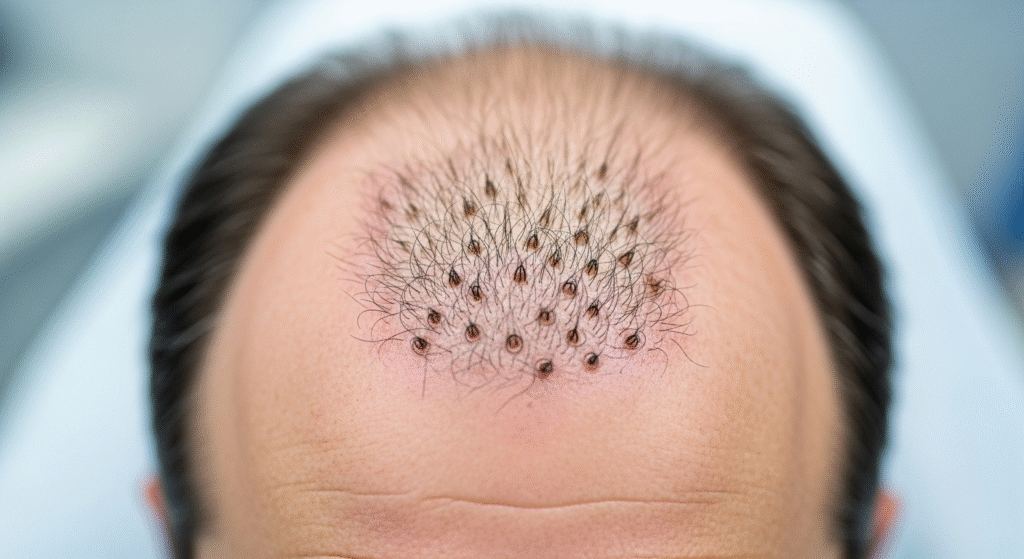Many people worry about taking medications after a hair transplant. If you’re searching for ways to manage a hair transplant without medicine, you’re not alone. This guide explains how you can recover naturally, avoid unnecessary risks, and still achieve strong results. You’ll learn timelines, expert recovery tips, and safe alternatives that support natural healing—all backed …
Many people worry about taking medications after a hair transplant. If you’re searching for ways to manage a hair transplant without medicine, you’re not alone. This guide explains how you can recover naturally, avoid unnecessary risks, and still achieve strong results.
You’ll learn timelines, expert recovery tips, and safe alternatives that support natural healing—all backed by medical insights to ensure your confidence in the process.

Why Choose a Hair Transplant Without Medicine?
While medication is often prescribed to reduce swelling or prevent infection, many patients prefer a more natural path. Some reasons include:
- Avoiding side effects from painkillers or antibiotics
- Personal health conditions that limit drug use
- Preference for holistic healing through lifestyle and care
- Trust in natural recovery supported by clinical procedures
According to hair restoration specialists, avoiding unnecessary drugs is possible as long as you follow strict aftercare and professional guidance.
Is It Safe to Skip Medicine After a Hair Transplant?
Safety is the top concern for anyone considering recovery without medicine. Here’s what you need to know:
- Yes, it can be safe—but only if the transplant was done by a qualified surgeon under sterile conditions.
- Strict hygiene and aftercare become even more critical without antibiotics.
- Natural recovery methods like saline sprays, proper washing, and gentle care can help prevent complications.
How to Recover Naturally After a Hair Transplant
A drug-free recovery focuses on care, patience, and lifestyle adjustments.
1. Immediate Aftercare (First 3 Days)
- Keep the scalp clean with sterile saline sprays.
- Sleep with your head elevated to reduce swelling.
- Avoid touching or scratching grafted areas.
2. First Week Precautions
- Wash hair gently with mild shampoo as advised.
- Do not apply oils or herbal remedies unless approved.
- Protect scalp from direct sunlight and sweat.
3. Ongoing Care (Weeks 2–4)
- Allow scabs to fall naturally.
- Stay hydrated and eat a protein-rich diet.
- Avoid exercise that causes heavy sweating.
Why Is Sweating Bad After a Hair Transplant?
Sweat increases the risk of bacterial growth and graft dislodgement. If you’re avoiding antibiotics, minimizing sweat is even more important.
- Sweat carries bacteria that may cause infection.
- Moisture weakens new grafts in the first 2 weeks.
- Delayed healing is possible if scalp isn’t kept dry.
Pro Tip: Use a soft, clean towel to pat the scalp dry if sweating occurs.
How Long Should You Avoid Sweating After Surgery?

Doctors generally recommend:
- First 10–14 days: Avoid all heavy activity and exercise.
- After 2 weeks: Light walking is usually safe.
- After 1 month: Gradual return to normal workouts.
By avoiding medicines, you may need to extend this timeline slightly for added safety.
When Can You Exercise Again?
Returning to physical activity depends on how well your scalp heals:
- Low-intensity exercise: Safe after 2 weeks
- Moderate exercise (cycling, jogging): Safe after 3–4 weeks
- High-intensity workouts: Best after 6 weeks for natural recovery
Expert Recovery Tips Without Medicine
Here are some natural strategies recommended by specialists:
- Cold compresses for swelling (never directly on grafts)
- Balanced diet rich in vitamins and proteins to support growth
- Herbal rinses like aloe vera water (only if approved by your surgeon)
- Avoid smoking and alcohol, as they slow down natural healing
Common Myths About Medicine-Free Hair Transplant Recovery
- “Skipping medicine always leads to infection” → Not true if aftercare is followed.
- “Pain will be unbearable without painkillers” → Discomfort is mild and usually manageable with rest.
- “Results won’t last without medicine” → Long-term growth depends more on surgical quality than medication.
FAQs
1. Can I completely avoid medicine after a hair transplant?
Yes, but only under your surgeon’s guidance. Some situations may still require basic medication.
2. What natural remedies help with healing?
Saline sprays, a healthy diet, and cold compresses are safe options.
3. Will avoiding medicine affect hair growth results?
No, growth depends mainly on graft survival and aftercare, not on medication.
4. How do I prevent infection without antibiotics?
Maintain strict scalp hygiene, avoid sweating, and follow your doctor’s cleaning routine.
Ready To Take Your Next Step
Ready for a safe and natural recovery journey? Book a consultation with Dr. Uzma Irfan, an ISHRS-certified surgeon in Islamabad today to learn how you can achieve lasting results from your hair transplant without medicine.






